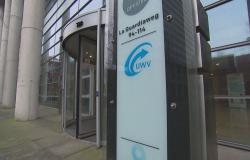Why is the House of Representatives asking for such a new tax?
In October last year, 120 MPs supported a proposal from the Christian Union to base the existing tax on non-alcoholic drinks on the sugar content of the drink. A majority in Parliament believes it is desirable for Dutch people to consume less sugar, because sugar is a real fattener. Obesity is also a growing problem in the Netherlands with negative consequences for public health, which also leads to higher healthcare costs.
Seven European countries already have such a sugar tax, including France and the United Kingdom. The tax has had a positive effect in those countries. Because a sugar tax increases prices, sales of sweet drinks drop significantly after introduction.
Many manufacturers also adjust their recipes: they put less sugar in their drinks to fall into a lower tax bracket. In Great Britain, the sugar content of taxed drinks fell by 43.7 percent in four years.
About the author
Yvonne Hofs is a political reporter for de Volkskrant and writes about finance, economic affairs and agriculture, nature and fishing.
Hasn’t the Netherlands already introduced such a sugar tax this year?
That is a widespread misunderstanding. People talk about a sugar tax, but that is not the case. The Netherlands has had a consumption tax on non-alcoholic and low-alcohol drinks since 1993. This tax is a flat tax and makes no distinction based on sugar content.
The 2022 coalition agreement stated that the fourth Rutte cabinet would ‘increase the tax on sugary drinks’. A somewhat strange formulation, because the Netherlands does not have such a tax: the same rate applies to sugar-free cola as to regular cola.
The motivation for introducing the consumption tax in 1993 was purely financial: more money for the treasury. Discouraging sugar consumption was not a goal. However, the cabinet did decide at the time to exempt dairy and soy drinks from tax for health reasons. That exception still applies.
As of this year, an exception for (sugar-free) mineral water has been added, because this encourages the consumption of healthy water to the detriment of the sale of sugary drinks. This may be the origin of the misunderstanding that the government introduced a sugar tax in January: because the total revenue for the treasury had to remain the same, the tax on other non-alcoholic drinks has been increased by 51 percent in 2024.
Four months after this change, does the House of Representatives want to do things differently?
The House already asked for this in October, but by then it was too late to introduce such a sugar tax from 2024. Making mineral water tax-free was the highest possible goal this year.
The significant increase in consumption taxes on other non-alcoholic drinks has unintended effects, as became clear last month. Fruit juice manufacturer Riedel, producer of Appelsientje, Dubbelfrisss and CoolBest, among others, is launching a new range of fruit juices with a hint of dairy to avoid consumption tax.
Non-alcoholic drinks only need to contain 0.02 percent milk fat to fall under the exception rule for dairy drinks. This new series of fruit juices does not necessarily contain less sugar than the old Appelsientje.
The exception for dairy drinks is outdated in any case, according to the Cabinet and House. Chocolate and raspberry milk contain a lot of sugar and are therefore hardly healthier than soft drinks. It is also illogical that soy milk is tax-free, but all kinds of new dairy alternatives such as oat and rice milk are not.
Where are the political differences?
A sore point are the pure fruit juices. Soda makers can reduce sugar content at will in response to a sugar tax, but juice makers cannot. Their drinks usually contain as much sugar as soft drinks, but the producers cannot influence that content, because that sugar is simply in the raw material, the fruit.
The Senate therefore wants the sugar tax to make a difference between added and natural sugars. Unfortunately, that is impossible, the cabinet reported in a letter to Parliament on Friday. Customs, the agency that must monitor and enforce, cannot distinguish natural sugars from added sugars in the laboratory.
What is possible is to exempt fruit juices as a category from the sugar tax, just like mineral water. The disadvantage of this is that this does not make sense for health reasons, because sugars from fruit juice are just as bad for the body as sugars from soft drinks.
The exception for dairy and soy drinks could be dropped because it cannot be properly substantiated. The government is presenting a number of variants to the House of Representatives for choice. Each of these variants has five tax brackets: the more sugar, the higher the rate. Due to its complexity, the differentiated sugar tax cannot come into effect until 2026 at the earliest.
Tags: Fruit juice oat milk taxed sugary drinks Cabinet lets House choose
-





